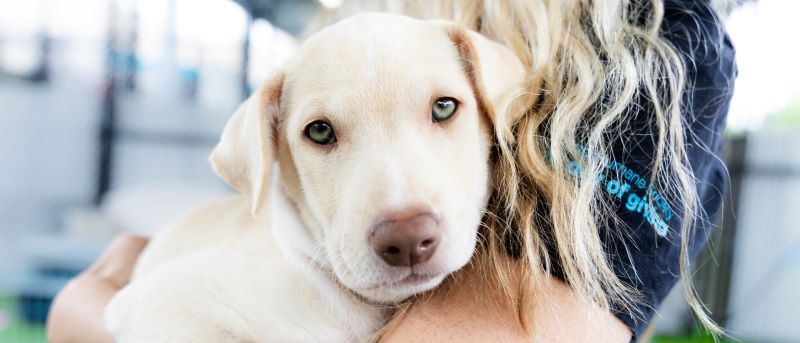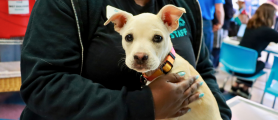Rabbit Hemorrhagic Disease Virus Type 2(RHDV2)
Rabbit Virus in Southern California
San Diego Humane Society’s veterinary team is urging owners of pet rabbits to have them vaccinated against Rabbit Hemorrhagic Disease Virus Type 2, a contagious and fatal disease for rabbits. Because RHDV2 is spreading so fast in Southern California, San Diego Humane Society is also asking for the public’s help in quarantining rabbits who do not require immediate medical attention for 18 days, if at all possible, before bringing them to SDHS. Rabbits should be kept indoors and separate from other rabbits who may go outdoors or be exposed to wildlife, as well as separate from rabbits who do not live in the home.
According to the California Department of Food and Agriculture’s update on May 18, Rabbit Hemorrhagic Disease Virus serotype 2 (RHDV2) has been confirmed in domestic rabbits at a total of 49 backyard properties in Southern California since July 2020. The most recent detection in San Diego County was on May 17, in Riverside and Ventura Counties on May 7, in Los Angeles on April 16, in Kern County on April 14, and in San Bernardino on March 17. The most recent case in Ventura county was in feral domestic rabbits.
RHDV2 is not related to coronavirus, and it does not affect humans or domestic animals other than rabbits. It is highly contagious — transmitted via direct contact with infected rabbits and indirectly via animate and inanimate objects that come in contact with the virus. RHDV2 can also live in the environment for prolonged periods of time and can be transmitted from humans to rabbits via contaminated clothing, shoes or other items. Clinical signs include fever, lethargy, anorexia, neurologic deficits, abnormal vocalizations and sudden death. Some rabbits can appear healthy and develop clinical signs acutely. Young rabbits four to eight weeks of age can be asymptomatic.
In addition to vaccinating, here are additional tips for pet owners to protect their rabbits:
- Keep your rabbit indoors.
- Do not let your rabbit come into physical contact with other rabbits from outside your home.
- Wash your hands before and after handling your rabbit.
- Change your clothes if you have come in contact with other rabbits.
- Disinfect shoes and other objects that may be contaminated.
- Know your hay and feed sources. Only purchase from a trusted manufacturer.
- Do not feed rabbits foraged plants, grasses or tree branches.
- Install window and door screens to prevent mosquitos and flies inside.
- Quarantine any new rabbit in the home for at least 18 days.
- Use rabbit safe monthly flea treatments (as prescribed by your veterinarian only) for rabbits, cats and dogs.
- Contact your veterinarian if your rabbit becomes sick.
San Diego Humane Society has created a comprehensive protocol for admission and medical evaluation of rabbits to help prevent the spread of RHDV2. At this time, San Diego Humane Society’s Ramona Wildlife Center is not admitting rabbits from the Ramona area. To prevent the possibility of the spread of RHDV2 to the rest of the population, all wild rabbits admitted to the Ramona Wildlife Center must be humanely euthanized. Rabbits admitted to the Pilar & Chuck Bahde Wildlife Center in San Diego who are not from Ramona will be quarantined according to the current protocol. None of San Diego Humane Society’s campuses are admitting pet rabbits from outside San Diego County.
The CDFW is requesting the public report sightings of sick or dead wild rabbits, hares, or pikas to the CDFW Wildlife Investigations Lab at 916-358-2790 or file a report through the CDFW website. Outdoor recreationists should take precaution when hiking, camping or backpacking and not handle or disturb carcasses to minimize the potential spread of RHDV2.
Published: May 20, 2021








